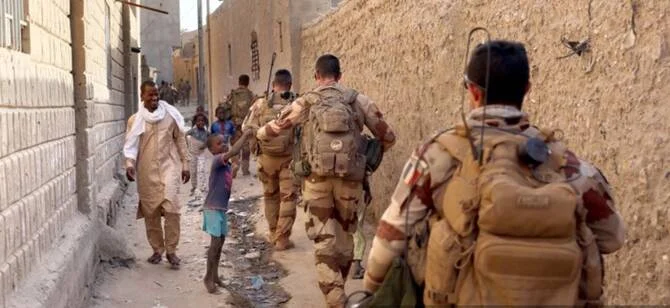The Malian Armed Forces successfully thwarted an attempted assault on a military facility in the historic city of Timbuktu on Monday June 2nd 2025, amid escalating attacks by Islamist militants across the Sahel region.
According to an official statement by the army, the attack began with a car bomb detonation in the city center, followed by intense gunfire aimed at the military installation.
Local residents reported hearing multiple explosions and sustained bursts of gunfire shortly after dawn, causing panic in nearby neighborhoods.
The army confirmed that 13 attackers were killed in the confrontation and that their forces had seized arms, vehicles, and other combat equipment.
No military or civilian casualties were officially reported by the government forces, who stated the situation is now fully under control.
JNIM Claims Responsibility for Attack
The jihadist group Jama’at Nusrat al-Islam wal-Muslimin (JNIM), a coalition linked to al-Qaeda, has claimed responsibility for the failed attack in Timbuktu.
This marks the second assault by the group in as many days, underscoring the persistent and dangerous rise in militant activity across Mali.
Just 24 hours earlier, JNIM fighters launched a deadly raid on a military base in Boulkessi, a town in central Mali near the Burkina Faso border.
According to regional security sources, more than 30 Malian soldiers were killed during the attack, though the Malian military has not confirmed those figures.
The base was reportedly overrun, forcing government troops to retreat.
JNIM also claimed a separate May 24 offensive on a garrison in Dioura, another central Malian town, where the group said 40 soldiers were killed.
While the government has not released an official death toll for these incidents, independent observers and security analysts believe the number of casualties from JNIM operations is rising at an alarming rate.
Rising Toll Across the Sahel
The violence in Mali is part of a broader regional security crisis spanning across Mali, Niger, and Burkina Faso.
All three countries, currently led by military governments following coups between 2020 and 2023, have struggled to contain jihadist insurgencies that have intensified in recent months.
Since the start of May 2025, over 400 military personnel are believed to have been killed by insurgent groups in the Sahel.
According to aggregated reports from local sources, international observers, and human rights monitors.
Analysts warn that jihadist factions are exploiting political instability, weak supply lines, and gaps in regional coordination to expand their control, particularly in rural and border regions.
International Concerns Mount
The ongoing instability has drawn concern from regional organizations and foreign powers.
The United Nations and African Union have both urged the Malian government to pursue not only stronger military coordination but also inclusive political dialogue as a long-term solution to the crisis.
Meanwhile, international military support, previously led by French and European missions, has dwindled in recent years due to strained diplomatic relations and repeated military takeovers in the region.
With security forces stretched thin, local populations continue to suffer the brunt of the violence.
As of now, the Malian government has reaffirmed its commitment to national defense and pledged to continue operations to dismantle jihadist strongholds.
Yet with JNIM and other armed factions mounting more frequent and coordinated attacks, observers say the road to stability remains long and uncertain.























